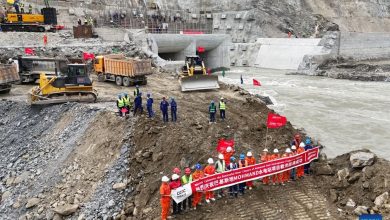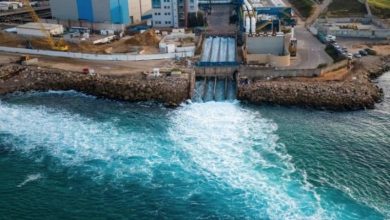Tourism Authorities of Azerbaijan, Pakistan Discuss Tourism Potential
Tourism authorities of Azerbaijan and Pakistan hold meetings to enhance tourism cooperation
Tourism authorities of Azerbaijan and Pakistan hold meetings to enhance tourism cooperation
Islamabad: The tourism authorities of Azerbaijan and Pakistan on Wednesday held productive meetings here to enhance religious tourism, bilateral cooperation, and cultural exchanges to boost the potential of tourism sectors of both countries.

In this regard, Federal Minister Sajid Turi, along with Secretary for Overseas Pakistanis and Human Resources Development, Zulfiqar Haider, and Secretary for Workers Welfare Fund, Zulfiqar Ahmad, held a meeting with Chairman of Azerbaijan’s State Tourism Agency, Fuad Naghiyev, in Baku.
This meeting between Minister Sajid Turi and Chairman Fuad Naghiyev signifies a progressive step in strengthening the bond between Azerbaijan and Pakistan.
As both nations possess rich cultural heritage, breathtaking landscapes, and numerous historical attractions, exploring tourism potential will undoubtedly pave the way for long-lasting cooperation and exchange.
The purpose of the meeting was to discuss and explore extensive tourism prospects between the two countries. The focus was primarily on the scenic northern areas of Pakistan, as well as religious tourism in Punjab, Khyber Pakhtunkhwa, and Sindh.
During the meeting, Minister Sajid Turi cordially invited Chairman Fuad Naghiyev to experience the beauty of Pakistan firsthand by visiting the country.
This visit aims to deepen bilateral cooperation between the tourism authorities of Azerbaijan and Pakistan, while fostering cultural exchange. The discussion also revolved around the potential for tour operators in Azerbaijan to explore the unparalleled beauty of Pakistan’s northern regions.
Recognizing the mutual benefits of such collaboration, Minister Sajid Turi emphasized the importance of strengthening ties between the tourism sectors of both nations.
This significant gathering follows the recent visit of Pakistan’s Prime Minister Shahbaz Shareef to Azerbaijan, which highlights the growing priority placed on bilateral tourism ties. The exchange of ideas and experiences between the two nations will enhance the overall tourism sector by sharing best practices and promoting socio-economic growth through increased international tourism.
Furthermore, Minister Sajid Turi highlighted the commitment of the Government of Pakistan to promoting tourism, aligned with the vision of the Pakistan People’s Party. The government’s steadfast dedication to tourism development is reflected in its efforts to create jobs, develop infrastructure, and foster sustainable tourism practices.







